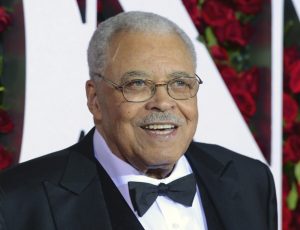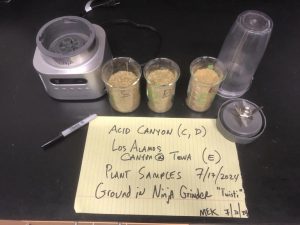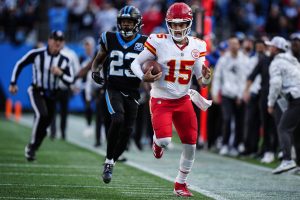AP survey finds Harris has enough delegates to be nominee. Here’s a state-by-state look

FILE - Democratic presidential candidate former Vice President Joe Biden, with Democratic vice presidential candidate Sen. Kamala Harris, D-Calif., raise their arms up as fireworks go off in the background during the fourth day of the Democratic National Convention, Thursday, Aug. 20, 2020, in Wilmington, Del. Looking on are Jill Biden, far left, and Harris' husband Doug Emhoff, far right. Historians and political advisers say history will be kinder to President Joe Biden than voters have been. Biden dropped out of the presidential race Sunday, July 21, 2024, clearing the way for a new Democratic nominee. (AP Photo/Andrew Harnik, File)
By DAVID A. LIEB Associated Press
Vice President Kamala Harris has secured the support of enough Democratic delegates to become her party’s nominee against Republican Donald Trump, according to an Associated Press survey taken in the aftermath of President Joe Biden’s decision to drop his bid for reelection.
Harris was endorsed by Biden minutes after he announced he would not accept the Democratic nomination. She then worked to quickly lock up the support of her party’s donors, elected officials and other leaders, and has so far received support from at least 2,214.
However, the AP is not calling Harris the new presumptive nominee. That’s because the convention delegates are still free to vote for the candidate of their choice at the convention in August or if Democrats hold a virtual roll call ahead of that gathering in Chicago.
The convention is scheduled for Aug. 19-22 in Chicago.
Updated state-by-state results from the AP’s survey can be found in this spreadsheet. You can also view results with a graphic on apnews.com.
___
HOW DID WE GET HERE?
Concerns about Biden’s age and electability had been growing within the Democratic Party for some time. But calls for Biden to bow out of the race intensified after his poor performance in a June 27 debate against Trump. Biden gave meandering answers and appeared to lose his train of thought during the debate, stoking concerns about his ability to win and serve another four-year term.
Top Democratic officials met privately with Biden and urged him to reconsider his candidacy. But Biden had repeatedly insisted he would remain in the race — almost right up until the moment he decided to drop out. He announced the decision with a statement posted on social media.
___
BIDEN’S OUT, NOW WHAT?
Biden had won enough states’ primaries and caucuses to secure support of a majority of the pledged delegates to the Democratic National Convention. But those delegates had not yet officially cast their votes when Biden bowed out of the race.
Biden’s departure frees his delegates to vote for whomever they choose.
There are nearly 4,700 delegates to the Democratic National Convention, with varying amounts from each state. That includes nearly 4,000 pledged delegates and about 700 superdelegates, such as current and former elected officials. The delegate selection rules can be found here.
To receive the Democratic presidential nomination, it takes a majority of votes from pledged delegates on the first ballot. If a second round of voting is needed to reach a majority, superdelegates also can vote. Voting procedures for the 2024 Democratic National Convention can be found here.
The Democratic National Committee previously planned to hold a virtual roll call to choose its presidential nominee ahead of the convention, to meet Ohio ballot eligibility rules. A committee setting the party’s convention rules is meeting to discuss the next steps.
___
FIND YOUR STATE: WHAT ARE DELEGATES SAYING?
Since Biden’s withdrawal from the race, the AP has been surveying Democratic convention delegates about who they plan to support for president. Updated results from that survey can be found in this spreadsheet. You can also view results with a graphic on apnews.com.
The National Democratic Committee has not publicly posted a list of all the convention delegates. However, the Association of State Democratic Committees maintains links to the websites of each state Democratic Party. State party official may be able to share the names of convention delegates from your state.
Democratic officials in some states have said their entire convention delegation will be supporting Harris for president. Those states include:
Alaska
Arkansas
Florida
Indiana
Iowa
Kansas
Kentucky
Louisiana
Maine
Maryland
Nebraska
Nevada
New Hampshire
North Carolina
Pennsylvania
South Carolina
Tennessee
Wisconsin
___
RECENT GOVERNOR ENDORSEMENTS OF KAMALA HARRIS
— Oregon Gov. Tina Kotek said, “She’s tough, she’s smart and she’s ready to unite the country.”
— Arizona Gov. Katie Hobbs said, “Americans are looking for a new generation of leadership that will move past the divisiveness and unite us around our shared American values.”
— Kansas Gov. Laura Kelly said, “Harris has always done what’s best for American families,” citing her record on abortion rights and helping to “safeguard democracy.”
— Massachusetts Gov. Maura Healy called Harris “a proven leader who has delivered for the American people again and again.”
___
WHAT DO THE POLLS SAY?
Shortly before Biden announced he was dropping out, a poll by AP-NORC Center for Public Affairs Research found that about 6 in 10 Democrats believed Harris would do a good job as a president. About 2 in 10 Democrats didn’t believe she would, and another 2 in 10 said they don’t know enough.
As for Americans more broadly, only about 3 in 10 U.S. adults said Harris would do well as president. About half said Harris would not do a good job in the role, and 2 in 10 said they didn’t know enough.
The poll of 1,253 adults was conducted July 11-15 using a sample drawn from NORC’s probability-based AmeriSpeak Panel, which is designed to be representative of the U.S. population. The margin of sampling error for all respondents was plus or minus 3.8 percentage points.
___
HAS ANYTHING LIKE THIS HAPPENED BEFORE?
A party’s presumptive presidential nominee has never stepped out of the race so close to the election.
Democratic President Lyndon B. Johnson, facing criticism because of the Vietnam War, announced in March 1968 that he would not seek another term that year. His announcement came after just a single state’s primary had been held. Biden’s July decision came after more than 14 million Democrats had cast votes supporting him through the primary process.
But throughout U.S. history, political parties have convened numerous conventions amid uncertainty. In 1960, Johnson and John F. Kennedy jockeyed for support from individual state delegations during their party’s convention. Democrats ultimately nominated Kennedy for president and Johnson for vice president.
___
CONSIDER THESE REPORTING THREADS
— Try to determine whether you have delegates from your area attending the Democratic National Convention. If state party officials haven’t released a comprehensive list of attendees, local Democratic leaders from your county or city probably are in a position to know or may even be attending themselves. Connect with convention attendees in advance in order to be able to keep in touch about any developments that may occur during the convention.
— What do Democratic National Convention delegates from your state or area say about the upheaval in the presidential race? Are they supporting Harris as Biden’s replacement on the presidential ticket? How do they think this changes the race?
— If Harris becomes the presidential nominee, who would Democratic delegates like to see as her vice presidential running mate? What considerations are important to them? What role do they think geographic or demographic diversity should play in the selection?
— In light of the assassination attempt against Trump, do delegates to the Democratic National Convention have concerns about security? Are they changing anything about their personal plans?
— What do voters think about Biden’s decision to drop out of the presidential race? Does this change who they were planning to support? What factors are now most important to them as they look ahead to casting their votes?









